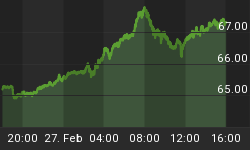Nebraska's legislature recently made headlines when it ended the state's death penalty. Many found it odd that a conservatives-dominated legislature would support ending capital punishment, since conservative politicians have traditionally supported the death penalty. However, an increasing number of conservatives are realizing that the death penalty is inconsistent with both fiscal and social conservatism. These conservatives are joining with libertarians and liberals in a growing anti-death penalty coalition.
It is hard to find a more wasteful and inefficient government program than the death penalty. New Hampshire recently spent over $4 million dollars prosecuting just two death penalty cases, while Jasper County in Texas raised property taxes by seven percent in order to pay for one death penalty case! A Duke University study found that replacing North Carolina's death penalty would save taxpayers approximately $22 million dollars in just two years.
Death penalty cases are expensive because sentencing someone to death requires two trials. The first trial determines the accused person's guilt, while the second trial determines if the convicted individual "deserves" the death penalty. A death sentence is typically followed by years of appeals, and sometimes the entire case is retried.
Despite all the time and money spent to ensure that no one is wrongly executed, the system is hardly foolproof. Since 1973, one out of every ten individuals sentenced to death has been released from death row because of evidence discovered after conviction.
The increased use of DNA evidence has made it easier to clear the innocent and identify the guilty. However, DNA evidence is not a 100 percent guarantee of an accurate verdict. DNA evidence is often mishandled or even falsified. Furthermore, DNA evidence is available in only five to 10 percent of criminal cases.
It is not surprising that the government wastes so much time and money on such a flawed system. After all, corruption, waste, and incompetence are common features of government programs ranging from Obamacare to the TSA to public schools to the post office. Given the long history of government failures, why should anyone, especially conservatives who claim to be the biggest skeptics of government, think it is a good idea to entrust government with the power over life and death?
Death penalty supporters try to claim the moral high ground by claiming that the death penalty deters crime. But, if the death penalty is an effective deterrent, why do jurisdictions without the death penalty have a lower crime rate than jurisdictions with the death penalty? And why did a 2009 survey find that the majority of American police chiefs consider the death penalty the least effective way to reduce violent crime?
As strong as the practical arguments against the death penalty are, the moral case is much stronger. Since it is impossible to develop an error-free death penalty system, those who support the death penalty are embracing the idea that the government should be able to execute innocent people for the "greater good." The idea that the government should be able to force individuals to sacrifice their right to life for imaginary gains in personal safety is even more dangerous to liberty than the idea that the government should be able to force individuals to sacrifice their property rights for imaginary gains in economic security.
Opposition to allowing the government to take life is also part of a consistent pro-life position. Thus, those of any ideology who oppose abortion or preemptive war should also oppose the death penalty. Until the death penalty is abolished, we will have neither a free nor a moral society.















